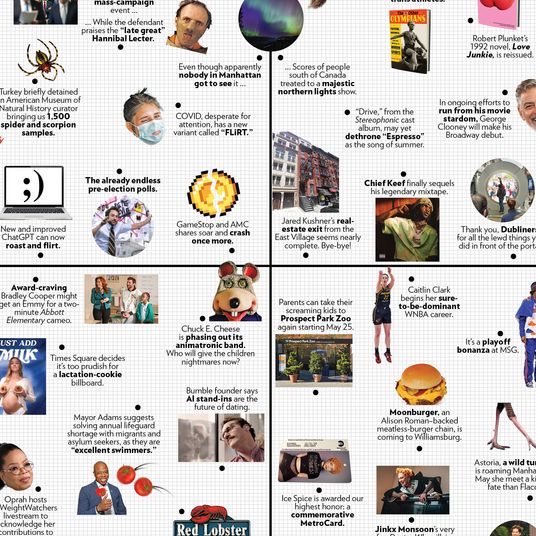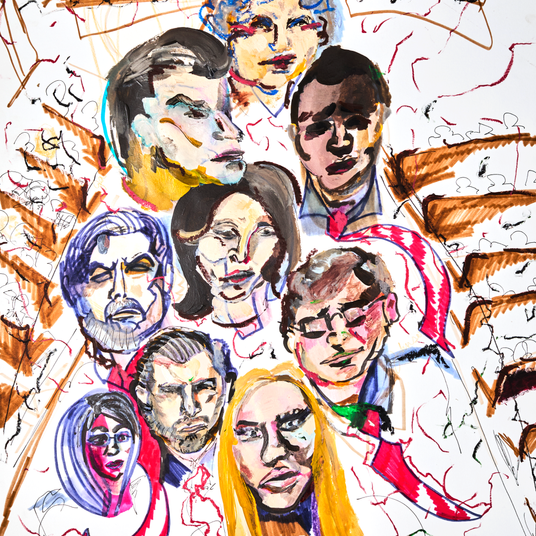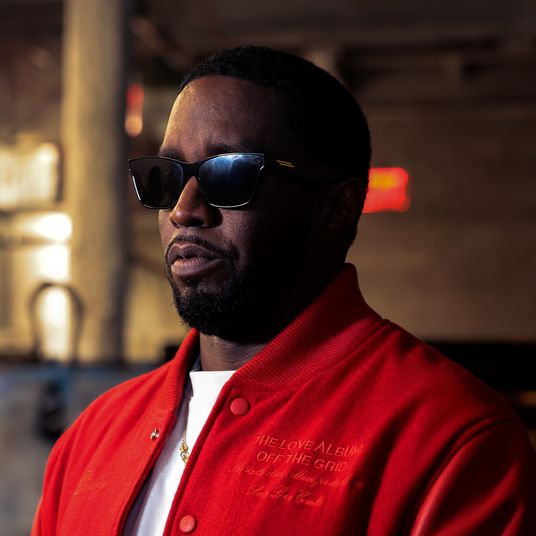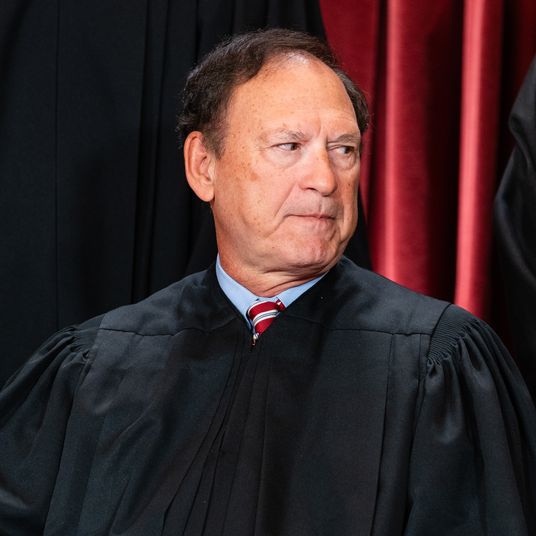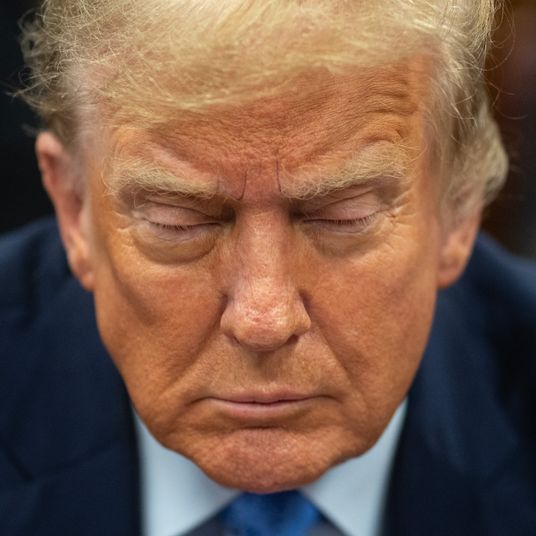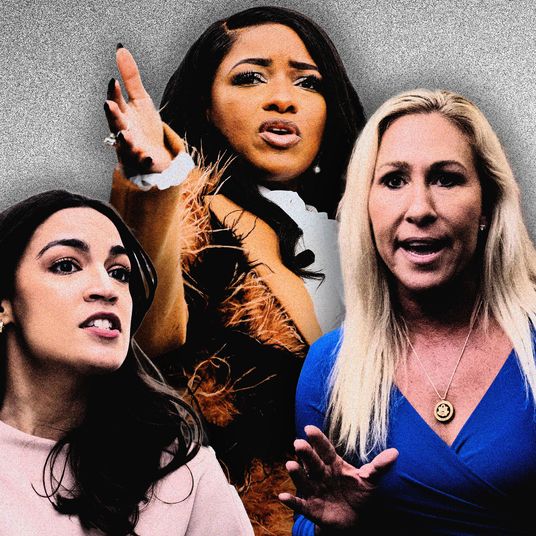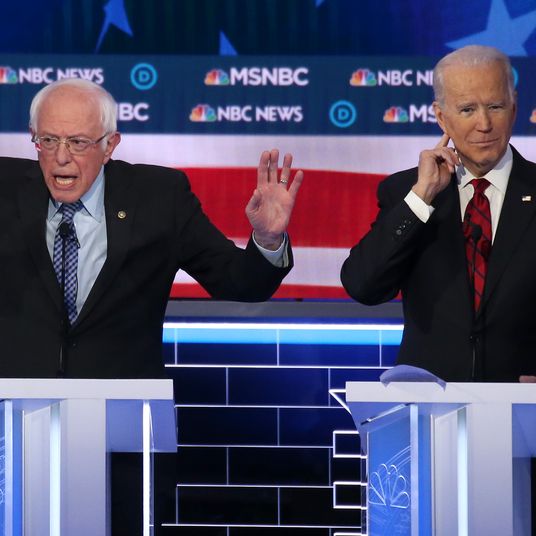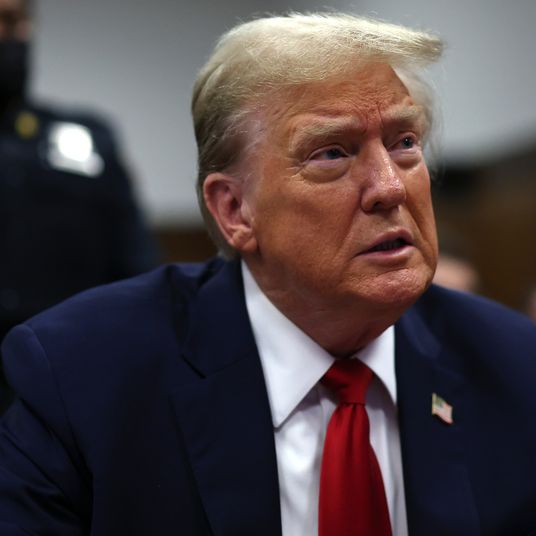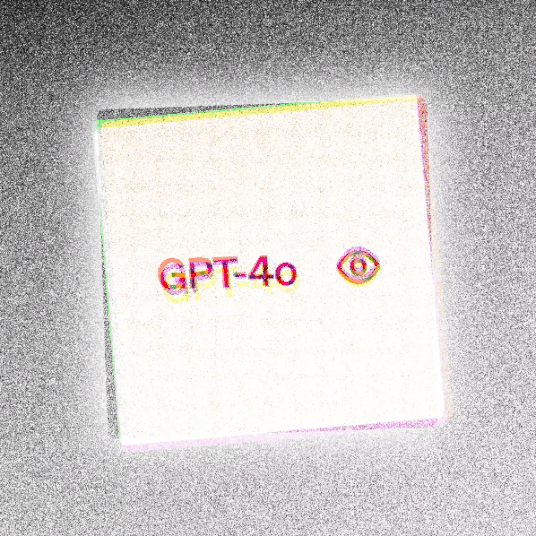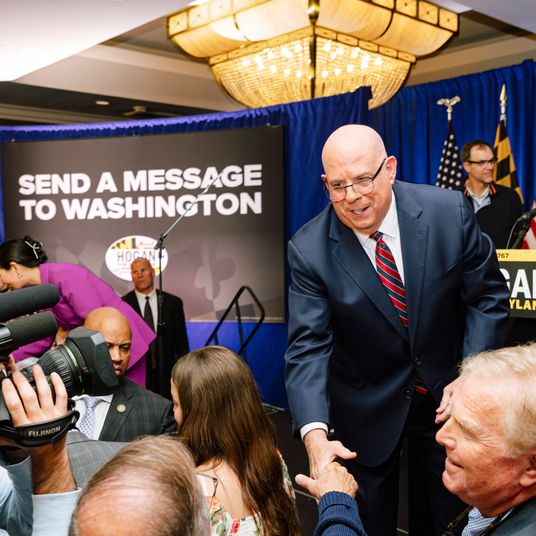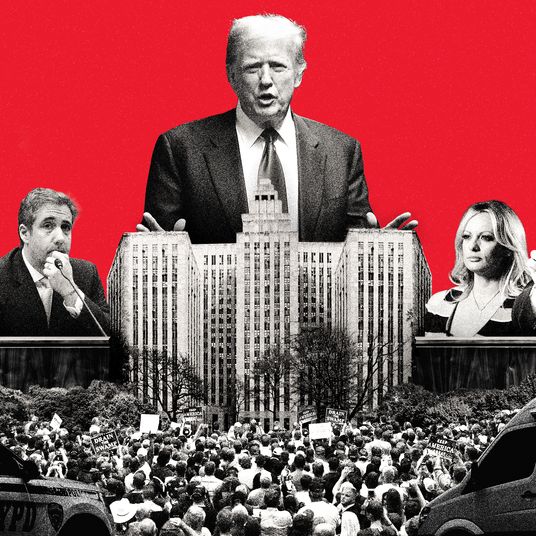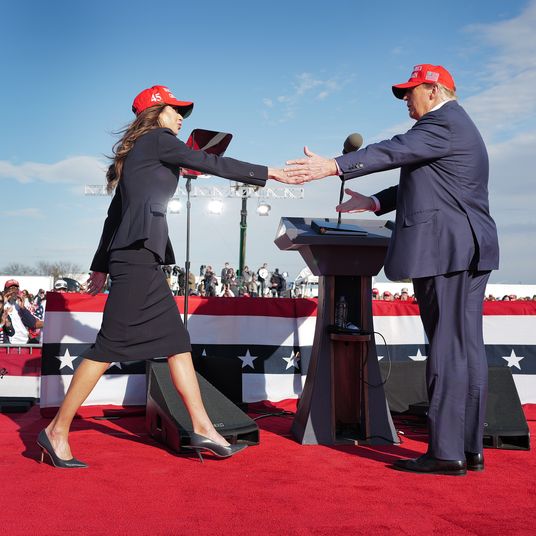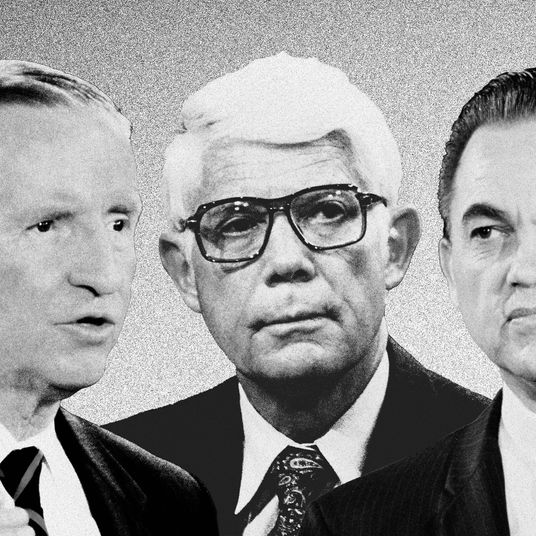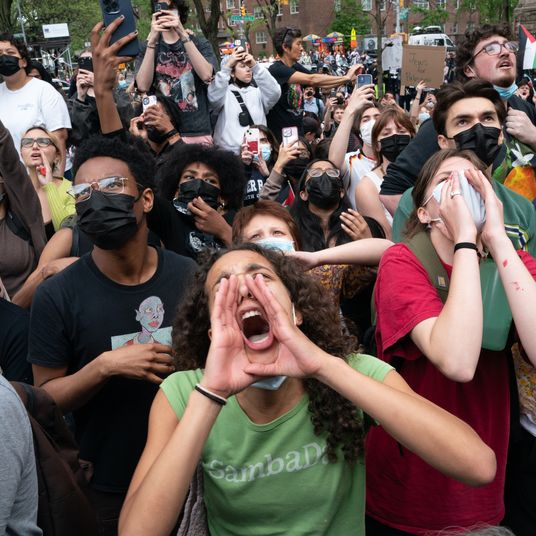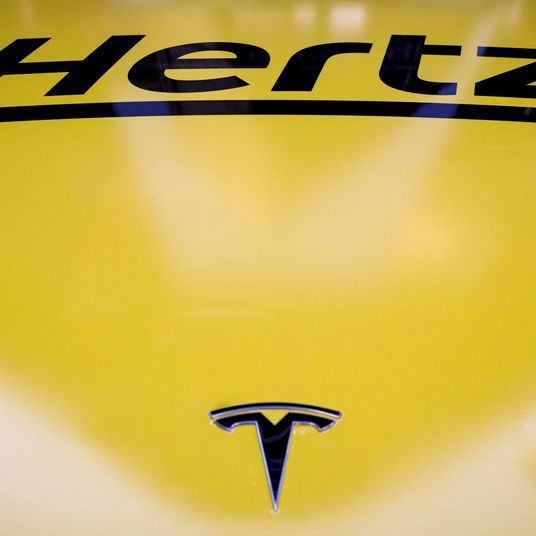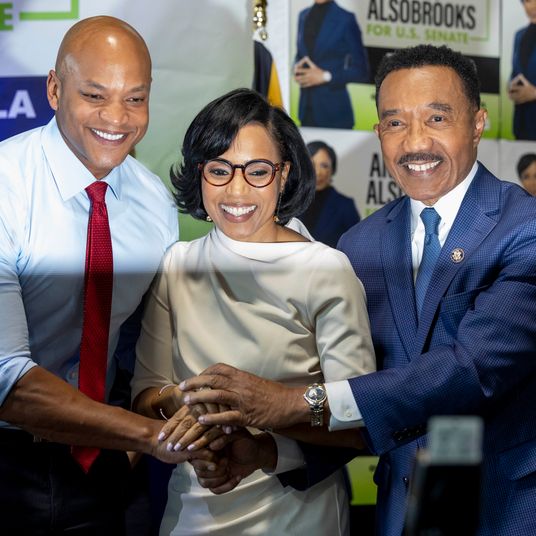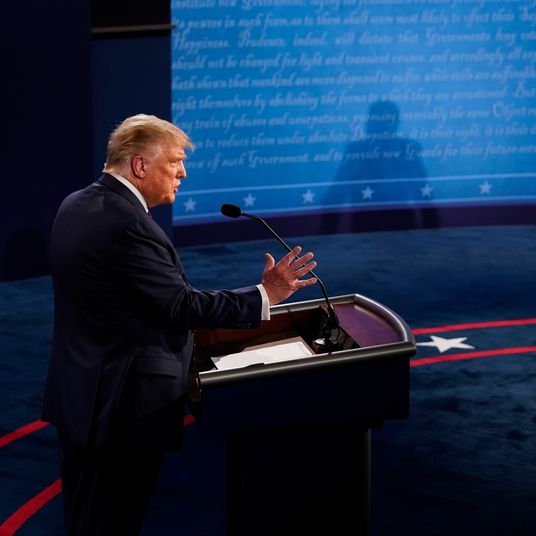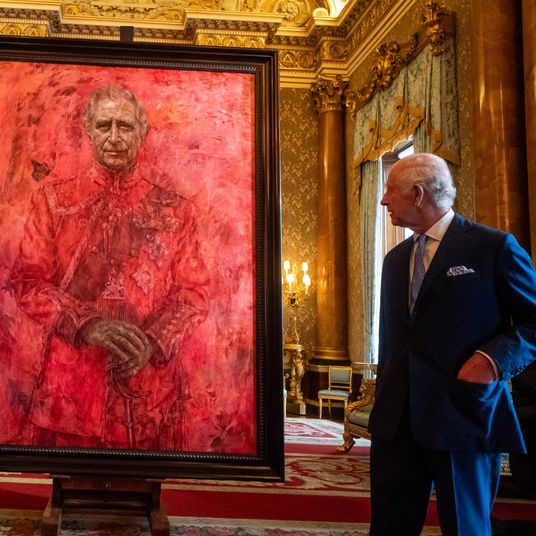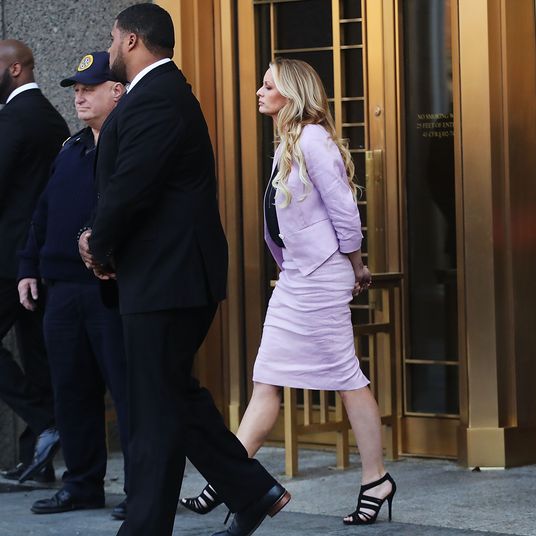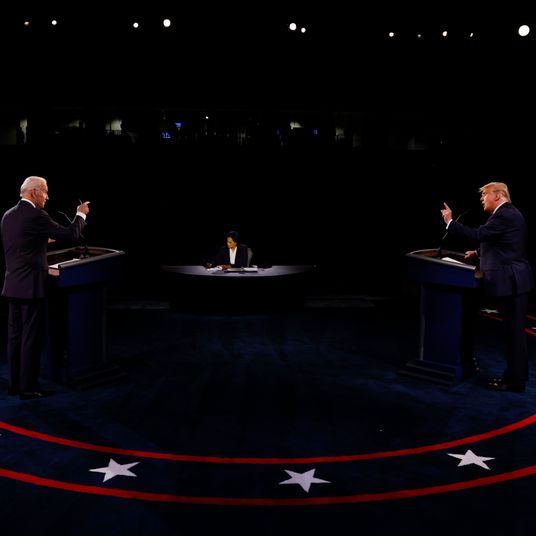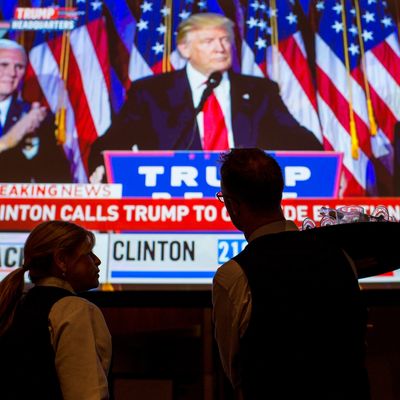
Now that we know who will be the Democratic challenger to Donald Trump in November, and are beginning to see the kind of regular horse-race polling of the presidential contest that may shape media and public perceptions down the stretch, it’s time to articulate a theory I’ve had all year long for how the punditocracy will treat the race, assuming (as I do) that it will be reasonably close. Overall, the media is going to put a big fat thumb on the scale for Trump heading toward Election Day, for five reasons:
1. Pure Overcompensation for 2016.
Ron Klain put his finger on this very simple human tendency:
Since the main debate in the mainstream media heading toward Election Day in 2016 was whether the odds of a Trump upset were or were not statistically significant enough to mention, it’s safe to say a lot of people paid to understand politics got it embarrassingly wrong. If they are going to get it wrong twice in a row, they probably want to mix it up a bit as to which way they are wrong.
2. Incumbents Win
There have been ten presidents since FDR who ran for a second term. Eight of them (FDR, Truman, Ike, Nixon, Reagan, Clinton, George W. Bush, and Obama) won; two (Carter and H.W. Bush) lost. That’s a pretty high winning percentage. Yes, the country may be facing an economic situation much worse than that in 1980 (when Reagan beat Carter) or in 1992 (when Clinton beat Bush), but because of the dire nature of the emergency, Trump will benefit at least some from a “rallying effect” that would have never occurred to anyone in 1980 or 1992.
3. Trump’s Electoral College Advantage
One non-superstitious reason for adding a few mental points to Trump’s polling numbers is simply that he has — thanks to a more efficient distribution of Republican votes — an electoral college advantage that isn’t reflected in national popular vote polling. Yes, Trump threaded the needle in 2016 with upset wins in three Rust Belt states by a total of 77,000 votes. But this was the second such Republican win in the last five presidential elections, and word has it that another victory in electoral votes despite a loss in the popular vote is not only plausible but is in fact central to Trump’s strategy.
Trump, of course, rationalizes his popular vote weakness as the product of voter fraud in blue states like California, a claim hardly anyone else takes seriously. But it will take a big margin in the national polls (which, of course, measure popular vote preferences) for Biden before the punditry is convinced Trump won’t find a way to slither across the finish line again.
4. Widespread Democratic pessimism
The sheer weight of opinion about the election outcome can affect pundit perceptions, as they likely did in convincing just about every one of them that Clinton was a lock in 2016. This time around, it’s hard to find a Republican who doesn’t think Trump’s cruising to reelection and it’s hard to find a Democrat with any degree of confidence in Biden’s prospects. It seems to be a matter of partisan identity this cycle: Republicans look at the evidence and spin it madly in their candidate’s favor, apparently under the impression that self-confidence is a tangible asset, while by and large Democrats have a hard time seeing or accepting good news. That can even express itself in an “enthusiasm gap” in Trump’s favor. Again, the experience four years ago appears to heavily affect how both sides perceive current trends.
5. Pundits’ inability to grasp Democrats’ vigilance
If the experience four years ago makes Democrats pessimistic in 2020, it is also very likely to make them anything but overconfident. And so the number of would-be Biden voters who choose to stay home or vote for a minor party will be extremely low — a fact that few electoral observers seem to understand fully. Because Trump is the incumbent, “protest” votes by people not fond of either party or candidate will almost certainly go disproportionately to Biden (as they went to Trump when he faced the candidate of the party in power), as polls are already showing. And it’s also possible that despite Trump’s constant efforts to fire up his base, the arrogance he conveys could convince some of them their votes aren’t needed.
Now, it’s entirely possible that between the coronavirus, a close race, and huge confusion over the shape of the electorate that is likely to turn out, predictions will be few and far between heading toward November 3 — or even later, if there is heavy voting by mail and the returns come in slowly.
But all in all, those mainstream-media types that feel compelled to express an opinion will probably fear more than anything else being mocked by a victorious Donald Trump not once but twice. So they may just assume that’s a risk to be avoided by calling him the favorite.






